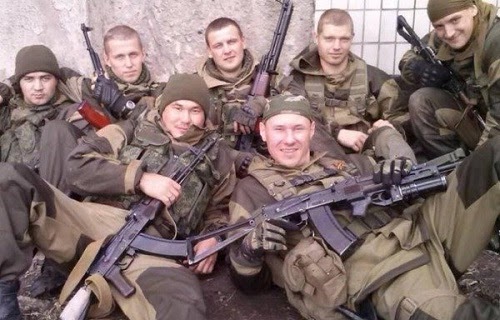EU Sanctions Russian Mercenary Group, Wagner Security Over Human Rights Violations
The sanctions are due to acts of human rights violations being perpetrated by the group across different countries.

Foreign Ministers of the European Union have imposed sanctions on the Russian paramilitary mercenary group, Wagner Security.
The sanctions, imposed on Monday, Dec. 13, target Wagner Security Group itself as well as eight persons and three entities that belong to it.
According to the EU, the group which belongs to Evgueni Prigojine, a close ally of Russian President Vladimir Putin, recruits, trains, and sends private military personnel into conflict zones across the world to proliferate violence, loot natural resources, and intimidate civilians in violation of international laws.
The eight persons affiliated to the Wagner Group sanctioned by the EU are accused of serious violations of human rights, such as acts of torture, summary executions, and extrajudicial murders as well as being involved in destabilisation activities in certain countries in which Wagner operates notably Libya, Syria, Ukraine, and the Central African Republic.
The group has also been extending its influence in the Sahel region, and for this reason, the EU holds that the group constitutes a threat to the inhabitants of the countries where it is present as well as the region.
According to the Ministers, the objective of the European Union decision was to reduce the subversive activities of the Wagner Group and signal the firm determination of the EU to defend its interests and its values within its neighbourhood and elsewhere, and to take concrete measures against those who threaten the peace and international security and violate international law.
The restrictive measures imposed were deemed necessary within the context of four different sanction regimes namely the global sanctions regime of human rights of the European Union and the regimes of sanctions related to the situation in Libya and Syria as well as for actions against the territorial integrity of Ukraine.
Individuals and entities who are affected by the sanctions who have their assets within the EU region frozen.
They would also face travel bans to and within the European Union while they would be banned from directly or indirectly receiving funds from European Union entities.
Support Our Journalism
There are millions of ordinary people affected by conflict in Africa whose stories are missing in the mainstream media. HumAngle is determined to tell those challenging and under-reported stories, hoping that the people impacted by these conflicts will find the safety and security they deserve.
To ensure that we continue to provide public service coverage, we have a small favour to ask you. We want you to be part of our journalistic endeavour by contributing a token to us.
Your donation will further promote a robust, free, and independent media.
Donate HereStay Closer To The Stories That Matter




